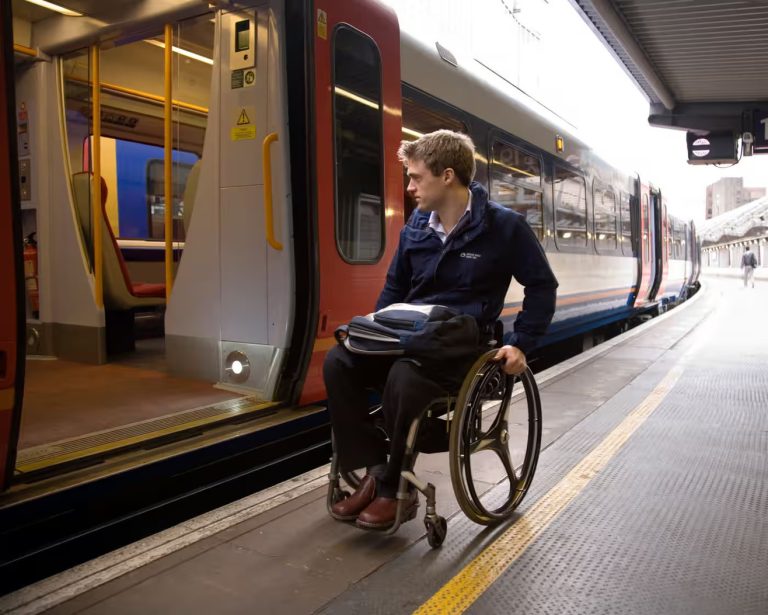UK Train Firms May Face Higher Payouts to Disabled Passengers After Rule Shift
Railway operators across the UK could soon be required to pay significantly higher compensation to disabled passengers left stranded due to failed assistance—despite having booked support in advance.
The Office of Rail and Road (ORR), the rail regulator, has issued a warning to train and station operators that compensation for such failures can no longer be capped at the price of a ticket.
This shift follows a landmark case where a disabled passenger was awarded £1,200 by a court—nearly 10 times the £125 offered by the Rail Ombudsman—after booked assistance to board a train never showed up. Through the Passenger Assist scheme, disabled passengers can request help with luggage, navigating stations, and boarding or exiting trains, including the use of ramps. Though assistance can be booked up to two hours before travel, many passengers report being left stuck on trains or platforms when staff fail to show.
One high-profile example includes former Paralympian Tanni Grey-Thompson, who last year was stranded at King’s Cross station and had to drag herself off a train before shouting for help.
Campaigners and legal experts argue current compensation policies fall far short of addressing the distress and breaches of equality law such incidents represent. The ORR is now consulting with the industry on stronger measures, prompted by a case brought forward by disability rights activist Doug Paulley.
Paulley, 47, who uses a wheelchair, had booked assistance in March 2023 to board the Caledonian Sleeper at London Euston. No staff appeared, and although train personnel eventually helped him board, the experience caused significant stress.
He pursued claims through both legal channels and the Rail Ombudsman. The ombudsman offered £125 in total—£100 for the assistance failure, and £25 for complaint mishandling—which Paulley rejected. A court later awarded him £1,325 for the same incident.
Paulley said, “I’m basically on a crusade to force the industry to pay proper compensation for these failures. This isn’t a customer service issue—it’s illegal discrimination. These failures have huge impacts on disabled people. They happen so often it’s clear the industry doesn’t care enough to stop them.”
He added that failures should be treated as seriously as safety incidents. Under the Vento scale used in courts to assess discrimination cases, the minimum compensation for “injury to feelings” is £1,200. “If train operators are regularly forced to pay that kind of sum,” Paulley said, “they might finally take this seriously.”
Claire Hann, a solicitor at Leigh Day representing Paulley, echoed this concern, stating: “Doug’s case is not isolated. Many disabled passengers face similar failures. It’s not just missing a train—it puts them in vulnerable and distressing situations, eroding their confidence in the ability to travel safely and independently.”
The ORR acknowledged that while most assistance is provided successfully, failures remain too frequent. A passenger satisfaction survey from 2023–24 showed 5% of Passenger Assist users couldn’t complete their journeys because help didn’t arrive—yet only 23% of those sought any compensation.
The regulator emphasized its commitment to ensuring proper support is provided, but also stressed that compensation must now be assessed on a case-by-case basis and should not be restricted to ticket cost alone.
Stephanie Tobyn, ORR’s director of strategy, policy and reform, said: “We’ve heard directly from those affected and believe it’s time to review compensation policies when assistance fails.”
A spokesperson for the Rail Delivery Group, which represents station and train operators, responded by saying: “We are committed to building a more accessible, inclusive railway. We want all passengers to travel with confidence, and while we recognize challenges remain, we understand how critical it is to get assistance right every time.”

